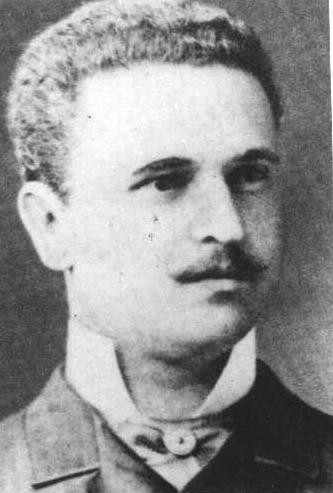Kjedoratism: Difference between revisions
mNo edit summary |
No edit summary |
||
| Line 1: | Line 1: | ||
'''Kjedoratism''' is | [[File:KonstantinStoilov.jpg|150px|frame|Dann Kjedor, the founder of Kjedoretism and its namesake]] | ||
'''Kjedoratism''' is a broad nationalist {{wp|ideology}} and movement in [[Seketan]] that espouses that [[Sekens|the land of the Sekens]] should be ruled by a Seketese state, generally considered to be most of the Northern half of the Island of [[Nelborne]] excluding [[Wilskland]], though which groups are considered "Sekens" and which land is considered "of the Sekens" is often disputed amoungst its followers. The ideology first gained traction in the early 20th century during {{wp|World War I}} in reaction to [[Nelbec Empire]] and their rule over Seketan. | |||
The ideolagy is primarily associated with the [[Kjedorate Party]], the {{wp|dominant party}} of [[Seketan]] from 1924 to 1978 which was founded by | |||
[[Dann Kjedor]], a Seketese political theorist and politican to achive independence from the [[Nelbec Empire]]. His writtings and specific beliefs about the ideology would go on to form Orthodox Kjedoratism, which stood for authoritantian rule and {{wp|Classical Liberalism}} Over time, other political theorists and politicans would establish new forms such as Modern Kjedoratism ({{wp|classical liberalism}} and democracy) and Socialist Kjedoratism. | |||
Today Kjedoratism is less popular then its peak in the 1950's with only small factions of Modern Kejedorates having mainstream succses, primairly with the [[National Conservative Party (Seketan)|National Conservatives]] and the [[Party of Seketan]]. The [[Kjedorate Caucus]] was established as part of the National Conservatives in 1994 to help facilitate the promotion of the ideology within the party. Notible Kjedorates today are [[Marckus Jellen]], [[Timothe Dhi]], and [[Simeon Hejjin]]. | |||
==Terminolagy== | |||
==History== | |||
==Forms of Kjedoratism== | |||
===Modern Krjedortism=== | |||
===Orthodox Kjedortism=== | |||
===Socialist Kjedortism=== | |||
==See also== | ==See also== | ||
Revision as of 16:50, 29 May 2021
Kjedoratism is a broad nationalist ideology and movement in Seketan that espouses that the land of the Sekens should be ruled by a Seketese state, generally considered to be most of the Northern half of the Island of Nelborne excluding Wilskland, though which groups are considered "Sekens" and which land is considered "of the Sekens" is often disputed amoungst its followers. The ideology first gained traction in the early 20th century during World War I in reaction to Nelbec Empire and their rule over Seketan.
The ideolagy is primarily associated with the Kjedorate Party, the dominant party of Seketan from 1924 to 1978 which was founded by Dann Kjedor, a Seketese political theorist and politican to achive independence from the Nelbec Empire. His writtings and specific beliefs about the ideology would go on to form Orthodox Kjedoratism, which stood for authoritantian rule and Classical Liberalism Over time, other political theorists and politicans would establish new forms such as Modern Kjedoratism (classical liberalism and democracy) and Socialist Kjedoratism.
Today Kjedoratism is less popular then its peak in the 1950's with only small factions of Modern Kejedorates having mainstream succses, primairly with the National Conservatives and the Party of Seketan. The Kjedorate Caucus was established as part of the National Conservatives in 1994 to help facilitate the promotion of the ideology within the party. Notible Kjedorates today are Marckus Jellen, Timothe Dhi, and Simeon Hejjin.
